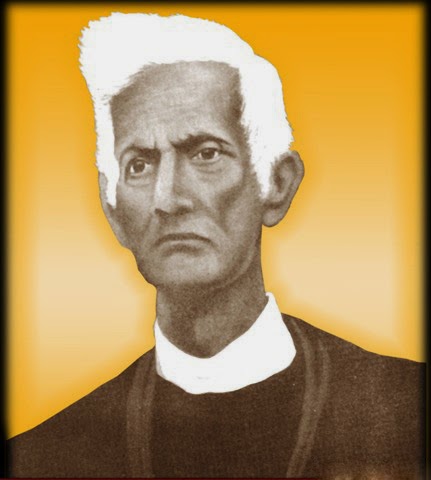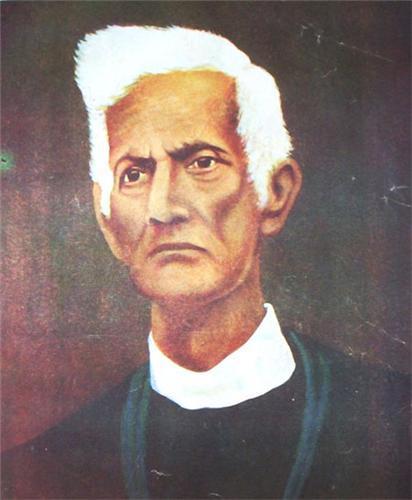Fakir Mohan Senapati, also known as the “Father of Modern Odisha Literature,” was a prominent and influential figure in the development of Odia literature. Born on January 13, 1843, in Balasore, Odisha, Fakir Mohan Senapati’s contributions to literature are invaluable and have had a lasting impact on the cultural and literary heritage of Odisha.
Fakir Mohan’s early life was marked by struggle and adversity. He came from a humble background and faced several challenges throughout his upbringing. However, his passion for literature and his unwavering spirit allowed him to forge a remarkable path for himself and leave an indelible mark on Odisha’s literary landscape.
Fakir literary career began when he started writing poetry in Odia at a young age. His poems primarily revolved around social issues, highlighting the plight of the downtrodden and the injustices prevalent in society. His writings, though simple and unassuming, were powerful and resonated deeply with the readers. Fakir Mohan’s poetry was a mirror to the society of his time, urging for social reform and change.
However, it was FakirMohan groundbreaking novel, “Chha Mana Atha Guntha,” published in 1892, that truly cemented his position as a trailblazer of modern Odia literature. The novel, which translates to “Six Acres and a Third,” tackled themes of land dispossession, exploitation, and the struggles of the rural population. FakirMohan keen eye for detail and his ability to capture the essence of rural life made the novel an instant success. It wasn’t just a work of fiction; it was a social commentary that exposed the deep-rooted problems inflicting society.

You can read our another post onFakir Mohan Senapati :The Pioneer of Modern Odia Literature
Through his writings, Fakir Mohan shed light on issues that were often overlooked or ignored by the society. He fearlessly addressed topics ranging from caste discrimination to gender inequality, challenging the status quo and urging for progressive change. Fakir Mohan paved the way for a new generation of writers who would carry the torch and continue his legacy in tackling social issues through literature.
In addition to his literary contributions, FakirMohan also played a significant role in the development of Odia language and grammar. He pushed for the standardization of Odia script and advocated for the use of colloquial language in literature, making it more accessible to the masses. Fakir Mohan’s efforts not only elevated the status of Odia literature but also played a crucial role in fostering a sense of pride and identity among the people of Odisha.
FakirMohan Senapati’s impact on modern Odia literature cannot be overstated. His works continue to be celebrated and studied, inspiring generations of writers and readers alike. His efforts to address social issues and bring about change through literature serve as a testament to the power of words.
Today, Fakir house in Balasore has been converted into a museum that showcases his life and works, ensuring that his legacy remains alive and accessible to all. The museum serves as a reminder of the rich literary heritage of Odisha and Fakir Mohan’s remarkable contributions.
In recognition of his immense contributions, FakirMohan Senapati was posthumously awarded the title of “Utkal Gourav” (Pride of Odisha) in 1965 by the Odisha Sahitya Akademi. His life and works continue to be celebrated, making him an eternal inspiration for all those who aspire to use literature as a tool for social change.

Write A FAQ For Fakir Mohan : Father of Modern Odisha Literature
Who was Fakir Mohan, and why is he known as the Father of Modern Odisha Literature?
Fakir Mohan Senapati, born in 1843, was a celebrated writer and social reformer from Odisha, India. He is honored with the title “Father of Modern Odisha Literature” because of his significant contribution in shaping the modern Odia literature. His writings were characterized by their realistic depiction of social issues and his efforts to uplift the marginalized.
What were some of Fakir Mohan’s notable works?
Fakir Mohan wrote several influential works, including “Chha Mana Atha Guntha” (Six Acres and a Third), a novel that shed light on the complex issues of land ownership and exploitation. He also authored “Rebati,”a short story that spoke about the struggles of a young girl in a male-dominated society. His stories and novels highlighted the social and economic inequalities prevalent during his time.
How did Fakir Mohan contribute to the development of Odia language?
Fakir Mohan played a crucial role in shaping the Odia language and literature. His works marked the beginning of a transition from traditional Odia literature to a more contemporary, socially relevant form. He introduced new prose forms and vocabulary, which helped in popularizing the language and making it more accessible to the masses.
What were Fakir Mohan’s social reform efforts?
Apart from being a writer, Fakir Mohan was actively involved in several social causes and worked towards uplifting the underprivileged sections of society. He advocated for education, especially for girls, and fought against social evils such as child marriage and the dowry system. Through his writings, he aimed to bring awareness and inspire positive change in society.
What is Fakir Mohan’s legacy and impact on Odisha literature?
Fakir Mohan’s literary works and reformist ideas left a lasting impact on Odisha literature. He not only brought attention to pressing social issues but also gave a voice to the marginalized communities through his realistic and relatable characters. His contributions laid the foundation for the modern Odia literature, inspiring generations of writers and intellectuals to address social injustices through their art.
